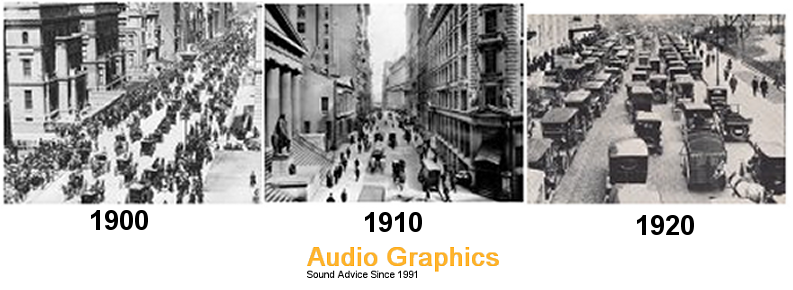 July 21, 2015
July 21, 2015 Me, Me, Me, vs. Free, Free, Free
We are in transition, and at an impasse on a couple of major issues that affect each other. Having written about both items for 19 years, I’m considering whether further writing is warranted. Perhaps it’s time to accept that nothing will change.
Item 1 is the indie artist payment issue, including not just the falling sales of music but how much the music industry believes new artists should be paid. (It’s important to focus on that “new artists” portion of the statement.)
Item 2 revolves around the radio industry, online and off. Those in control seem to believe growth in competition has no affect on how it prices radio’s product - advertising, including not only the dollar pricing but the mechanics of how ad pricing is constructed.

After spending time heavily involved on both sides, I’ve come to a decision: Nothing will correct what all parties believe to be inequities forced upon them. That’s the “Me, Me, Me” aspect of our title.
The “Free, Free, Free” part comes from altered consumer behavior. Here I speak about the delivery of audio entertainment and information; it’s forever changed, with increasing expectations for so much more at little-to-no-cost.
Artists want to be paid for every spin of their music, whether or not it is used as a draw (as in established acts), or to expand a fan base for newbies (there is a huge difference).
On the radio side, stations believe they can continue a revenue model that’s based on being local, having limited competition, and providing no proof of performance in an ad world demanding media-provided ROI (Return on Investment).
Daily I read comments from broadcasters and pure-play radio operators on how streaming is a profit wasteland. All are mired in past patterns that base revenue on a cost-per-thousand delivery of advertising. That’s an effective strategy when all around you are using the same; but in an internet world where most revenue is generated on a cost-per-action (CPA), CPM doesn’t work due to a meager audience at most every online station.
For artists, again, daily I read how those using music need to pay more. Seldom discussed is how the vast majority of indie artists are looking to expand their fan base and, in essence, are pursuing exposure in much the same way as an advertiser pays for it.
I’ve written about both topics extensively and don’t wish to get into it again. If you want to explore either, here are posts on radio and indie artists that tackle the issue from my perspective.
Everything has changed over the past two decades. 1) How many people you can reach is offset by how many competitors are trying to reach the same group; 2) How you earn money has flipped from being one of a few in your locale providing the service of radio or music, to swimming in an over-sized sea of content that makes yours a hardly noticeable trickle. Fact is, with the internet, your content usually gets no audience.
Despite seismic change, we see both groups demanding the world change back so their revenue streams may stay the same.
Radio continues to desire selling advertising using CPM pricing, with no intent of providing ROI proof.
Artists want pay for every spin of their music, and it doesn’t matter if they are a nobody seeking exposure. More-and-more, “pay me” is the cry. Through SoundExchange, RIAA continues to say “that’s not enough” with backing from many acts.
Nobody is guaranteed to make a living wage doing what they choose to do. It’s why demanding action that will never happen is useless. Just today I read one indie artist state: “…remove all online content except from your own site and get paid via PayPal there. iTunes and the like (AND the consumers) are like spoiled brats….” Yes, that is how consumers are, which makes these demands a “never going to happen” scenario. (As for iTunes, is it consuming the product or part of the artist’s sales chain?)
Society is operating with an “I’m going to pay less to you, or get it from somebody else” mindset. And the most frightening thought of all, it’s working.
19 years of watching, and warning, and writing, and seeing nothing change, has changed me.
From today on I’ll continue helping artists find radio stations willing to expose their music through RRadio Music; there is a small $10 processing fee. For four years it was free (2003-2007), but then too many artists started submitting songs that were nowhere close to being ready for radio. It’s amazing how requesting that little amount solved the problem.
Radio stations can use these RRadio Music songs - free - if they choose.
If not, either way I’m no longer going to worry about whether indie artists or radio stations make money.
Someone else can try to convince all parties that “me, me, me” doesn’t work when the world is demanding “free, free, free.”
Ken Dardis
Audio Graphics, Inc.
RRadio Music
RadioRow







Reader Comments